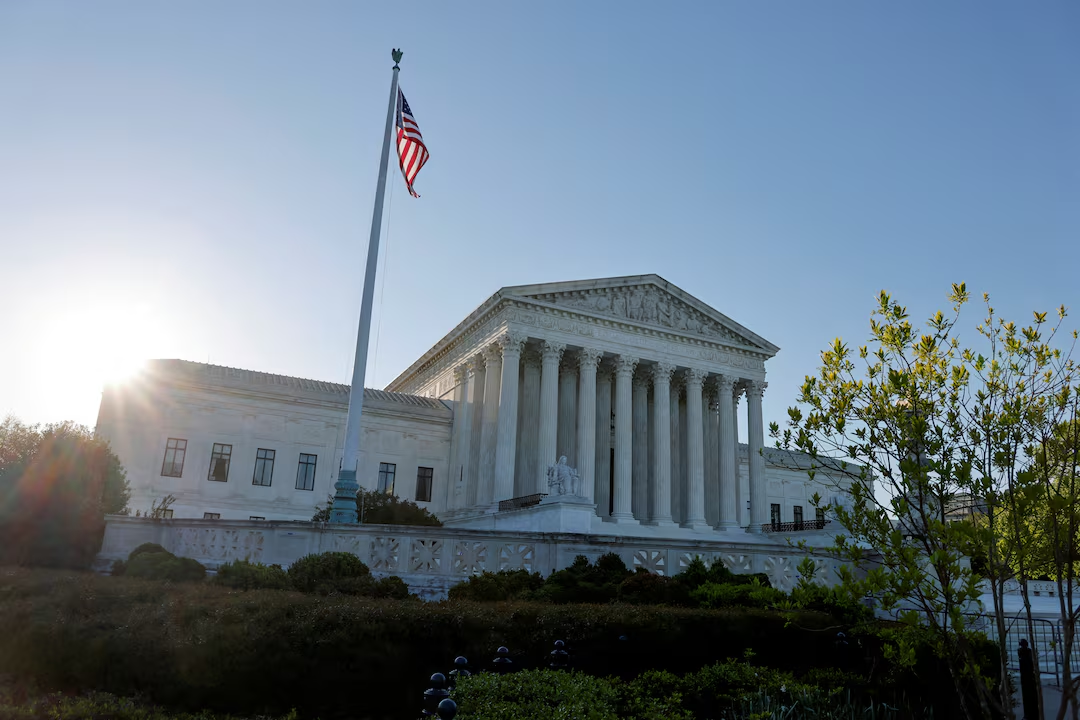A federal judge has taken a bold stand against President Donald Trump’s executive order aimed at dismantling birthright citizenship, issuing a nationwide block that has far-reaching implications for immigrant rights and constitutional guarantees. The ruling from US District Judge Joseph Laplante on July 10, 2025, is a watershed moment in the ongoing battle over immigration policy and civil rights in America.
Judge’s Ruling Underscores Constitutional Protections
Laplante’s decision is grounded firmly in the text of the Fourteenth Amendment, which enshrines the right to citizenship for anyone born on American soil. In his ruling, the judge emphasized that denying citizenship to children born to undocumented immigrants would constitute “irreparable harm.” As reported by NPR, this ruling comes at a time when the Supreme Court has limited the ability of lower courts to issue nationwide injunctions. However, Laplante’s use of class-action status brilliantly circumvents this limitation, allowing him to protect the rights of countless children who would otherwise be rendered stateless.
Potential for Change in Immigration Policy
The judge’s preliminary injunction, which is set to remain in effect indefinitely, blocks Trump’s order from being enforced against any child born after February 20, 2025. The implications of this ruling extend beyond the immediate legal context; it represents a broader challenge to the Trump administration’s immigration policies, which have often been characterized by discrimination and exclusion. Judge Laplante’s assertion that “US citizenship is the greatest privilege that exists in the world” reinforces the notion that citizenship should not be contingent upon one’s parentage status.

Donald Trump Seeks To End Birthright Citizenship, Appeals In Supreme Court
Class Action Lawsuits as a Tool for Justice
The ruling also signals a potential shift in the judicial landscape for civil rights advocates. Class action lawsuits are emerging as a powerful tool to challenge executive overreach and protect vulnerable populations. The American Civil Liberties Union (ACLU), which spearheaded the legal challenge, successfully argued for a class of individuals that includes “all current and future children” affected by Trump’s order. This strategic maneuver highlights the importance of collective legal action in safeguarding civil rights, particularly for communities that have been historically marginalized.
Impact on Future Court Challenges
The precedent set by Laplante’s ruling could resonate throughout the judicial system as other courts reassess their decisions in light of the Supreme Court’s recent restrictions on nationwide injunctions. Judges across the country are now tasked with navigating this new legal framework, which may lead to a patchwork of responses to the birthright citizenship issue. As reported by AP News, the Supreme Court has indicated that class-action litigation remains a viable path for challenging unconstitutional policies.

U.S. Supreme Court to reopen to public after long COVID ...
Political Ramifications for the Trump Administration
This ruling is not just a legal victory but a political blow to the Trump administration, which has sought to redefine American citizenship for its own agenda. As the president and his allies grapple with the implications of this ruling, it could galvanize opposition among voters who view immigration as a critical issue. The ACLU’s Cody Wofsy aptly remarked that this decision is “a huge victory” for all children born in the United States, reinforcing the idea that citizenship is a right, not a privilege bestowed upon a select few.
As the legal battles continue to unfold, the implications of Laplante’s ruling will likely resonate beyond the courtroom, shaping the national discourse on immigration and civil rights. The fight for birthright citizenship is far from over, but this ruling provides a significant foothold for advocates of justice and equality.

![[Video] Anti-ICE Protester Pepper Sprayed as CBP Agents Disperse Crowd in Minneapolis](/_next/image?url=%2Fapi%2Fimage%2Fthumbnails%2Fthumbnail-1768260677127-y71sb7-thumbnail.jpg&w=3840&q=75)

![[Video] Several injured as U-Haul truck drives through Iranian protestors in Los Angeles](/_next/image?url=%2Fapi%2Fimage%2Fthumbnails%2Fthumbnail-1768176682028-q95y6j-thumbnail.jpg&w=3840&q=75)
![[Video] Scuffle breaks out between Trump supporters and Anti-ICE protesters in Times Square](/_next/image?url=%2Fapi%2Fimage%2Fthumbnails%2Fthumbnail-1768165958203-hgcgb-thumbnail.jpg&w=3840&q=75)


![[Video] Gunfire between Iraqi security forces and Sadr militias in Baghdad](/_next/image?url=%2Fapi%2Fimage%2Fthumbnails%2Fthumbnail-1768343508874-4redb-thumbnail.jpg&w=3840&q=75)
